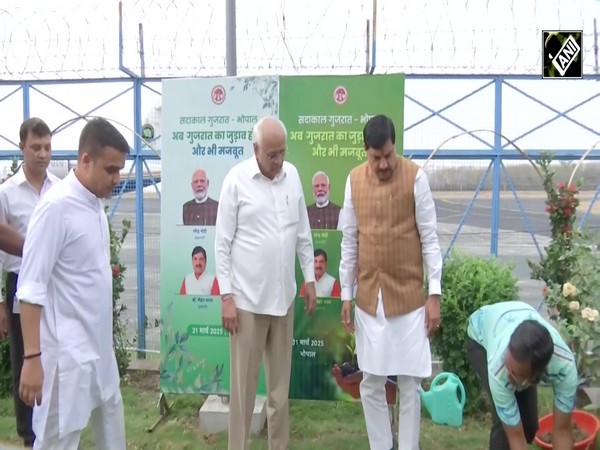After Lancet commission raises questions about WHO, UN body says omissions, misinterpretations in report
Sep 16, 2022

New Delhi [India], September 16 : A day after a Lancet Commission report claimed that the World Health Organisation (WHO) acted too cautiously and slowly while dealing with Covid-19, the UN body on Friday said that while it agreed with many of the findings there were also some "omissions and misinterpretations".
The Lancet Commission report had claimed that WHO acted too cautiously and too slowly on several important matters: to warn about the human transmissibility of the virus, to declare a Public Health Emergency of International Concern, to support international travel protocols designed to slow the spread of the virus, to endorse the public use of face masks as
protective gear, and to recognise the airborne transmission of the virus
Following the release of the Lancet Commission report, the WHO said that while it welcomes the overarching recommendations of The Lancet COVID-19 Commission's report on Lessons for the future from the COVID-19 pandemic "there are several key omissions and misinterpretations in the report, not least regarding the public health emergency of international concern (PHEIC) and the speed and scope of WHO's actions."
WHO, however, welcomed the Commission's endorsement of a pandemic agreement, strengthening the International Health Regulations (IHR), and enhancing financing.
"These issues are core to the vision of WHO Director-General, Dr Tedros Adhanom Ghebreyesus, as distilled in the five priorities for his second term. WHO and its Member States are already enacting these recommendations. The World Health Assembly agreed a historic decision in May 2022 to sustainably finance WHO.This year will see two rounds of public hearings for a pandemic accord take place," the statement added.
WHO echoed the Commission's conclusions that COVID-19 exposed major global challenges, such as chronic under-financing of the UN, rigid intellectual property regimes, a lack of sustainable financing for low- and middle-income countries, and "excessive nationalism, which drove vaccine inequity.
"It places a similar emphasis on the importance of multilateralism, solidarity and cooperation when facing pandemics. We also welcome the recognition of the key role that countries themselves play," it said.
"Many of the Commission's recommendations align with those received over the past two years from review bodies set up by WHO itself, such as the Independent Panel for Pandemic Preparedness and Response (IPPPR), the Independent Oversight and Advisory Committee for the WHO Health Emergencies Programme (IOAC) and the IHR Review Committee, as well as assessments from other entities. As we are a learning organization, we established a dashboard of recommendations from these initiatives and others to track their implementation by WHO and others," the WHO said.
WHO, however, added that the Lancet Commission does not convey the full arc of WHO's immediate, multi-year, life-saving response.
In its defence WHO mentioned that on December 30, 2019, they received the first alerts of cases of pneumonia of unknown cause in Wuhan, China, and notified the IHR focal point, seeking further information from Chinese health authorities the next day.
Similarly, on January 1, 2020, WHO activated its Incident Management System to manage daily activities. The team, which includes focal points on clinical care, infection prevention and control, diagnostics, logistics, communications and more, met daily throughout 2020, into 2021 and continues to meet this year.
On 5 January 2020, WHO issued a global alert to all Member States through a formal IHR system - the Event Information System - based on our initial risk assessment of the situation in China. This alerted Member States and advised them to take measures to identify cases, care for patients, and prevent infection and onward human-to-human transmission for acute respiratory pathogens with epidemic and pandemic potential.
As per the health body, This was its first global warning to take concrete measures for an unknown respiratory disease. WHO has consistently driven knowledge-sharing through dedicated briefings for countries, during which the critical experiences of early-affected countries were shared and the elements of WHO's comprehensive response were outlined.
The official statement also mentioned that WHO's early priority was getting access to masks for those most at-risk around the world; we initially recommended the use of medical masks for anyone with symptoms, anyone caring for someone sick, and frontline health workers. Our logisticians and other UN partners were central in activating the pandemic supply chain and increasing global supplies.
However, WHO still believes that the pandemic is not over, though the end is in sight, and WHO continues its response, while laying a stronger foundation for the future.
"WHO continues to actively pursue the search for the origins of SARS-CoV-2, with July 2021 marking the establishment of a permanent international Scientific Advisory Group for Origins of Novel Pathogens, or SAGO, which covers both SARS-CoV-2 and future new pathogens," it mentions.
The new Lancet Commission report on the international COVID-19 pandemic response calls it "a massive global failure on multiple levels" and spares no one the responsibility--including the public--for millions of preventable deaths and a backslide in progress made toward sustainable development goals in many countries.

















